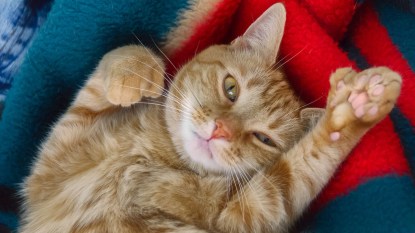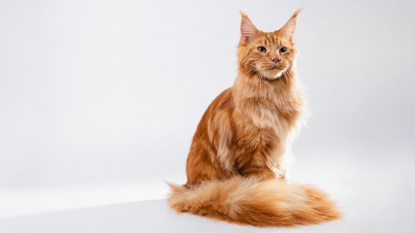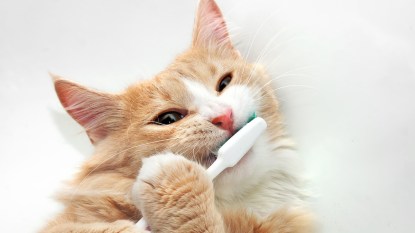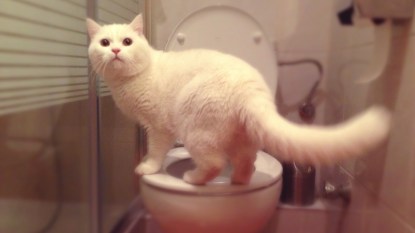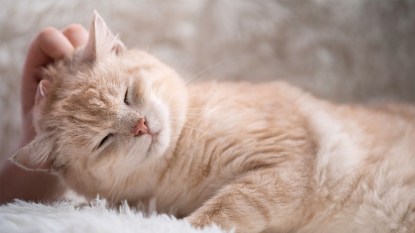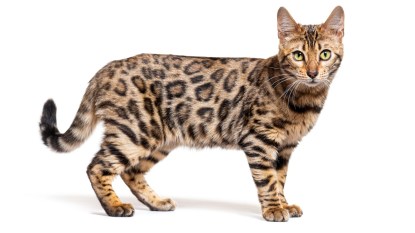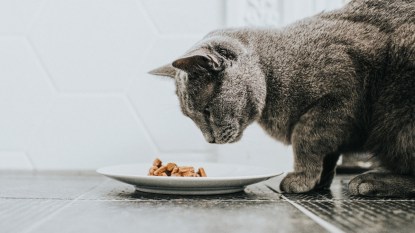Cat Twitching in Sleep: Vets Reveal What Those Cute Kitty Movements Mean
Learn when to be concerned and when you can relax and enjoy the cuteness
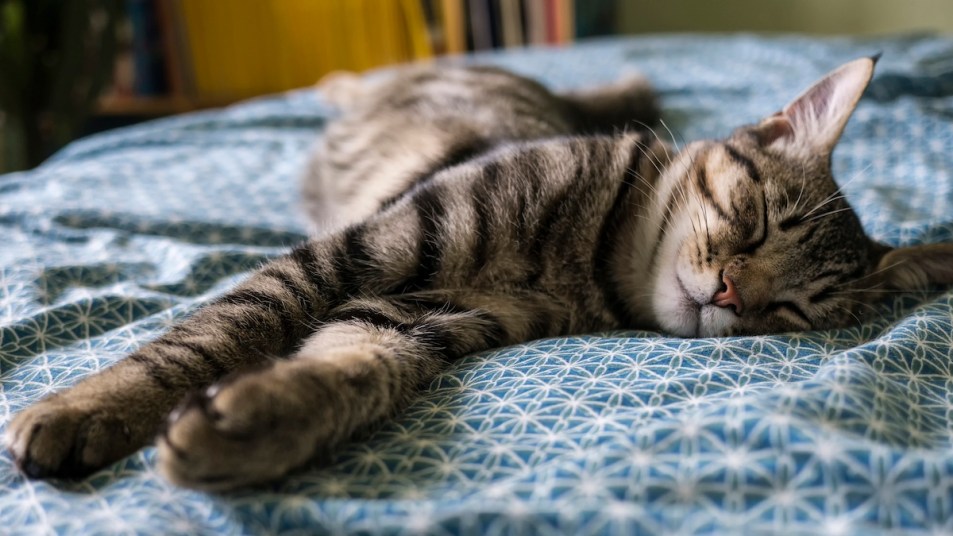
If you have a cat, you know your little guy spends much of the day sleeping and looks super cute while doing it. Cats are capable of going from zooming across the room to napping on the couch in a matter of minutes, and it’s always a delight to watch them sleep. Sometimes cats are perfectly still while they sleep, but other times you may notice some unusual movements. Here’s what it means when you see a cat twitching in sleep (and when twitching may be a cause for concern), according to pet pros.
Why cats twitch in their sleep
Like humans, cats (and dogs!) experience different stages in their sleep cycle, including REM, the phase of deep sleep in which dreams occur. “In REM sleep, there is an increase in nerve activity in the brain that activates muscles, resulting in twitching,” says Dr. Dwight Alleyne, veterinarian and expert for JustAnswer. Dr. Alleyne also notes that the most common forms of sleep twitches include jerking of the paws, mild vocalizations and quick movement of the eyelids.
Related: Do Cats Dream? Vet Reveals What Really Goes On In Feline Heads While They Sleep
When to be concerned about sleep twitches
“Most twitching during sleep is normal!” says Dr. Mikel Maria Delgado, cat behavior expert for Rover, so a shaky sleeping cat isn’t typically cause for concern. According to Dr. Alleyne, “If your cat is twitching in their sleep there is no need to do anything or wake them up unless the twitching seems to be very aggressive, or the whole body seems to be spasming.”
Related: What Your Cat’s Sleeping Position Reveals: Pet Experts Decode Those Quirky Poses
In rare cases of particularly unusual twitching or twitching in connection with other behaviors, you may want to take your cat to the vet. “If the twitching during sleep is increasing to violent spasming, or if you see twitching when your cat is awake, or you see other concerning behaviors like vomiting, drooling or collapsing, you should let your veterinarian know as soon as possible,” says Dr. Delgado. “It could indicate a neurological problem or sleep disorder.” Twitching accompanied by involuntary chomping of the mouth or uncontrolled urination or defecation is also a cause for concern, and if the twitching is particularly aggressive you’ll want to be sure it’s not a seizure.
The truth about sleep twitches
While you may be concerned if you see your cat sleep-twitching, you can rest easy knowing that this behavior is usually normal, and indicates that your cat is in a deep phase of sleep (wherein they may even be dreaming about chasing mice or going on an adventure!).
Related: Why Do Cats Cover Their Face When They Sleep? Vets Reveal How It Keeps Them Safe
If you start to notice the twitching becoming particularly aggressive or find it in tandem with out of the ordinary behaviors, then it’s worth getting a vet’s opinion to rule out any health issues, but in most cases twitching is just one more charming quirk of feline sleep. Just try not to wake your cat up! As Dr. Delgado says, “If your cat is having some minor twitching, there’s no reason to disturb them. A sleeping cat should be allowed to sleep!”
Read on for more about quirky cat behaviors:
Why Cats Chew on Plastic + Expert Explains How To Stop This Pesky Behavior
Cat ‘Airplane Ears’: Vets Reveal the 4 Reasons Cats Flatten Their Ears
Why Do Cats Like Shoes So Much? Vets Reveal the Reason for Their Quirky Obsession



